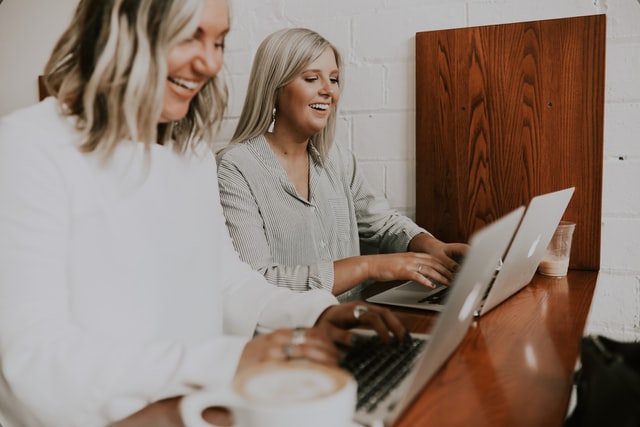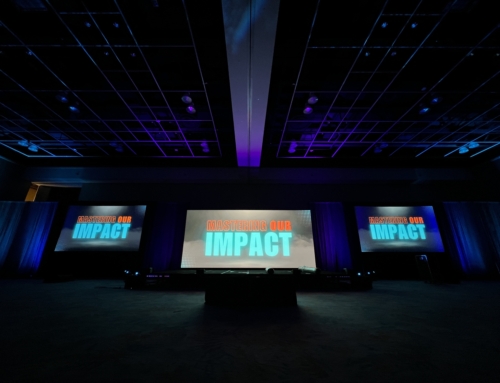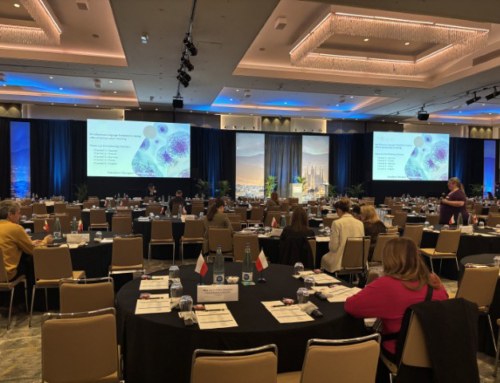We all have heard of “Zoom Gloom”. Why are virtual meetings much more tiring than in-person meetings? In this article, we look at what can cause the fatigue in the virtual world of events and share some ideas on how to address them for a better experience.
FOCUSED ATTENTION IS HARD WORK
Virtual meetings require more focused attention than in-person ones. Our ability to keep attention for a prolonged amount of time can vary depending on different factors. As the virtual world is relatively new to us and not as natural as the in-person environment, we are forced to develop new ways to process and decipher non-verbal cues like facial expressions, tone and pitch of voice, and body language. This heightened focus requires more work for our brains resulting in more fatigue.
WE DON’T LIKE SILENCE
If you’ve ever felt uncomfortable when there is a long pause during a radio program or during those quiet seconds when a TV reporter has a delay before responding, this is the peril of what media people call “dead air.” When it is in a broadcast medium like radio, TV, or video conference, silence makes us feel unsure and anxious even though it is a natural part of face-to-face conversation. In addition, scientists tell us that during phone or video meetings, silence has a big influence on how we view people. In experiments, delays of just over one second made people view others as less friendly.
Because of this unconscious tendency, we work harder in virtual meetings. Presenters do everything they can to fill every second with words. Discussions have virtually no down time and small-group sessions get awkward and uncomfortable when there is nothing substantive to fill the void – yet another multiplier of exhaustion.
WE ARE IN THE SPOTLIGHT
Finally, because we are physically on camera, we know everyone is looking at us, so we feel like we are on stage, and with that comes the pressure of performance. Given that most people are not accustomed to being on stage, being in the spotlight, or at least feeling that way, can be very nerve-wracking. This is in addition to the stress of seeing oneself on camera and feeling the need to frequently groom and adjust to maintain a good appearance.
So, in answer to the question as to why virtual meetings are more exhausting than attending live events, we have three main reasons: 1) we must work harder on focusing deeply to discern non-verbal cues; 2) ‘dead air’ makes us uncomfortable so we labor to fill the silence; and 3) we feel we are always ‘on stage’ and thus constantly working to look and sound our best. While these things are not totally removed from our in-person meetings, they are less prevalent and not as apparent to us. Thus, we can endure longer in the in-person world than in the virtual one.
Clearly, for virtual events to be more enjoyable and less taxing, planners and facilitators need to consider these challenges and adjust to alleviate their potential negative effects.
TIPS FOR MAKING VIRTUAL EVENTS EASIER ON ATTENDEES:
Here are three simple ideas you can incorporate today to reduce virtual meeting exhaustion:
- Build in transition periods in the agenda to help refresh attendees in addition to ‘bio breaks,’ – try stretching, doing a bit of exercise, playing a game, raffling off some company swag, or simply playing some light music to change the tone and freshen up the atmosphere. Do not pack your agenda with only serious business throughout. Attendees must be given a chance to switch gears and catch a breath.
- Set aside some time to catch up with people on a personal level before diving into the agenda. Check into people’s wellbeing and give them a chance to connect with others. This has shown to reduce stress and fatigue tremendously. One great solution is to have a host or Emcee drive the ice-breaker conversation and invite attendees to use a chat feature to engage with others. This tip allows for the attendees to be engaged in the meeting from the start and look forward to making connections just like they would in the in-person event environment.
- Make turning on the camera optional. Inform attendees ahead of time that cameras do not always have to be on throughout each meeting. This will help with the ‘on stage’ problem and put attendees at ease.
Virtual meetings are here to stay given their benefits, convenience, and cost-effectiveness, but for them to be effective, we must address our natural tendency to not be able to hold focused attention for a prolonged amount of time and adjust accordingly so the virtual meetings don’t become tiresome. Are you ready to make small changes to keep your attendee’s attention and energize them throughout your next virtual meeting?
Click here to learn more about our virtual platform Zenevent.






